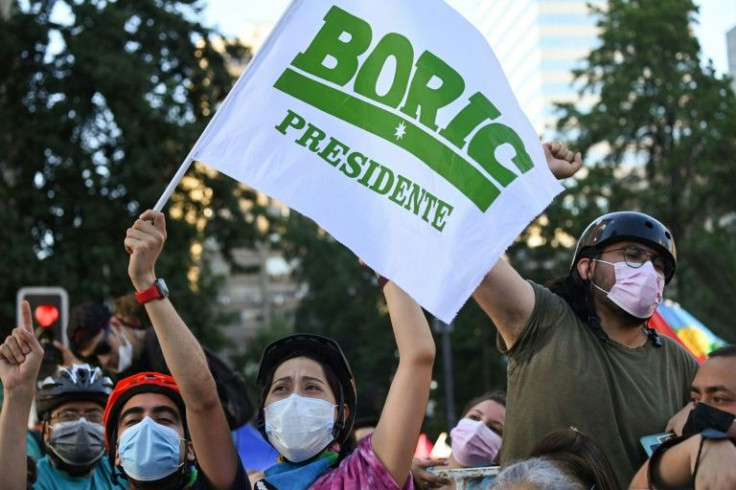Who Is Gabriel Boric? Radical Leftist Elected Chile’s Youngest President Ever
KEY POINTS
- Gabriel Boric, 35, won over right-wing opponent Jose Antonio Kast
- Boric supports abortion rights and has vowed to address Chile’s socio-economic inequality
- The young leader will be inaugurated in March
Gabriel Boric, a 35-year-old former student leader and leftist, won Chile’s presidential runoff election Sunday, becoming the youngest president of the country. He will be sworn in as president on March 11.
Boric won 55.87% of the votes against right-wing presidential bet Jose Antonio Kast’s 44.13%, CNN reported. The country’s election authority, the Electoral Service of Chile, has already counted 99.95% of the ballots. Kast conceded over an hour after the polls closed and congratulated the young radical for his “great triumph.” Kast said Boric “deserves all our respect and constructive collaboration.”
Boric’s win came following widespread anti-government protests that stemmed from alleged government corruption and socio-economic inequality in the country.
Leftist former student activist Gabriel Boric has secured a crushing victory to become Chile’s president-elect.
— The Washington Post (@washingtonpost) December 20, 2021
The 35-year-old will be the country's youngest president when he takes office March 11. https://t.co/CnF4CZVr7M
Boric, who supported the anti-government protests, has vowed to address the inequality in Chile that was backed by United Nations data indicating one percent of the Chilean population owned 25% of the country’s overall wealth, BBC reported.
Boric said he will implement a reform on the country’s pension and healthcare systems to address socio-economic equality. He has also expressed great interest in improving Chile’s green investments.
Speaking on the night of his primary win, Boric said, “Chile was the birthplace of neoliberalism, and it shall also be its grave!” The Guardian reported.
Boric has repeatedly spoken against dictator Augusto Pinochet’s legacy and has joined groups of student leaders before his presidential bid, calling for an ultimate end to regimes modeled on Pinochet’s beliefs. “I feel like an inheritor of the long trajectory of those who, from different places, have tirelessly sought social justice,” he said in front of supporters.
Leftist former student leader Gabriel Boric has stormed to a sensational win to become Chile’s youngest ever president-elect.
— John Bartlett (@jwbartlett92) December 20, 2021
His quest to bury General Pinochet’s legacy starts here https://t.co/KN7EY1RvgR
Leftist Gabriel Boric wins Chile presidential election https://t.co/PeBLewqbE8
— BBC News (World) (@BBCWorld) December 19, 2021
As a student, Boric joined protests spearheaded by young leaders who shared his sentiments about Chile’s need for better education. During the rallies 10 years ago, Boric and his peers protested against Chile’s privatized education system. Boric was unable to finish his law degree, and he entered politics as more young leaders called for change.
In his 20s, Boric served two terms at Chile’s congress as the representative of Magallanes and went on to win the candidacy of his leftist bloc as a dark horse. Upon winning the left’s presidential candidacy, Boric urged people to “not be afraid of the youth changing this country,” Reuters reported.
In an interview with Bloomberg in August, Boric said Chile needed “a new model of development in which wealth creation is not mostly from mining, and distribution of wealth is not based on trickle-down.” Boric believes the country should have a welfare state model. He also supports abortion rights and has distanced himself from far-left groups in his political alliance, including those that support Venezuela’s Nicolas Maduro.

© Copyright IBTimes 2025. All rights reserved.




















